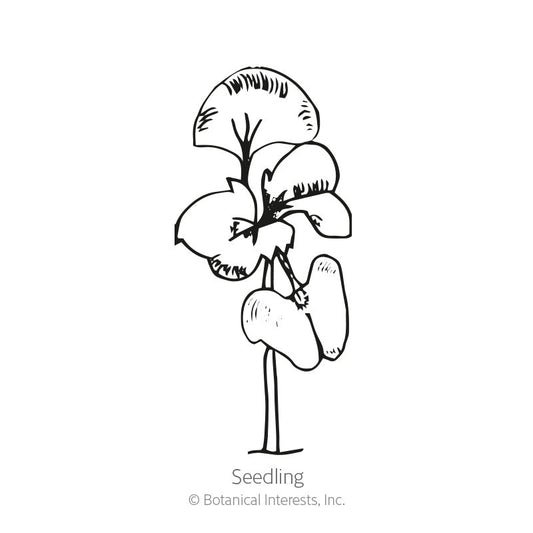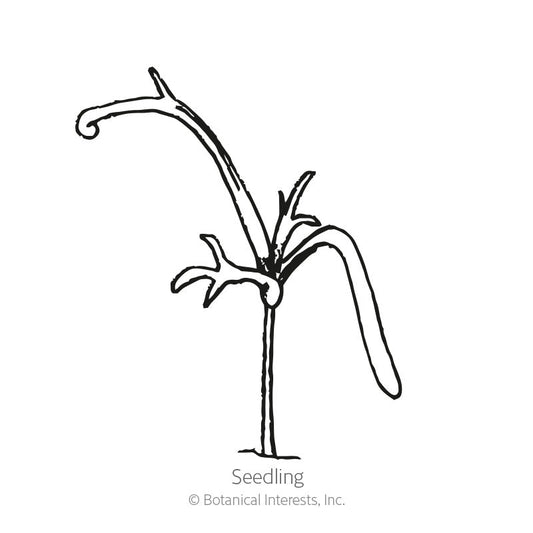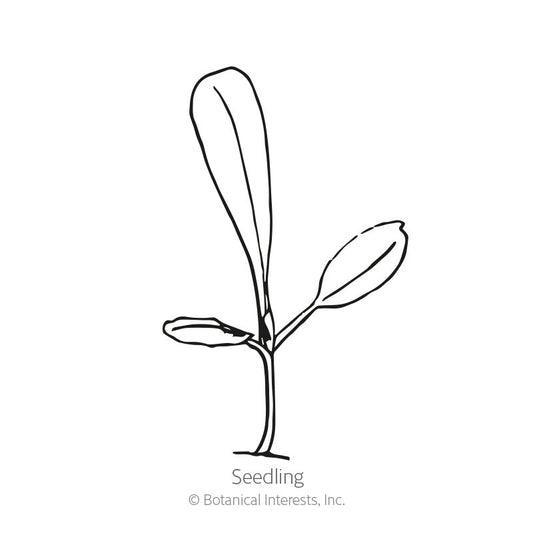


- Variety Info
- Sowing Info
- Growing Info
- Learn More
Variety Info
Days to Maturity: 62–90 days
Family: Fabaceae
Type: Shelling Bean (Learn More)
Native: Africa
Hardiness: Frost-sensitive annual
Exposure: Full sun
Plant Dimensions: 24" tall, bushy plants
Variety Info: Cylindrical, 6" long pods produced on crown of plant. Medium to large cream-colored seed with a red or maroon "eye".
Attributes: Frost Sensitive

Sowing Info
When to Sow Outside: RECOMMENDED. 1 to 2 weeks after your average last frost date, and when soil temperature is at least 65°F, ideally 70°–85°F. Successive Sowings: Every 7 to 14 days up to 80 days before your average first fall frost date. NOTE: In very hot summer areas, skip sowing as high heat approaches; temperatures consistently above 90°F will prevent beans from forming.
When to Start Inside: Not recommended; bean seedlings are sensitive to root disturbance.
Days to Emerge: 6–12 days
Seed Depth: 1"
Seed Spacing: 1 seed every 3"–4"
Row Spacing: 24"–36"
Thinning: Not requried
Your hardiness zone is
Growing Info
Harvesting: For fresh, tasty cowpeas, shell seeds or enjoy in pod about 60 days after sowing, when peas just start to swell in the pod; seeds will be developed but not hard at this point. For dried beans, wait until the pods are dry and straw-colored to harvest. Young foliage is also edible and enjoyed like spinach. At season's end, plants are great compost material if they are disease-free.










